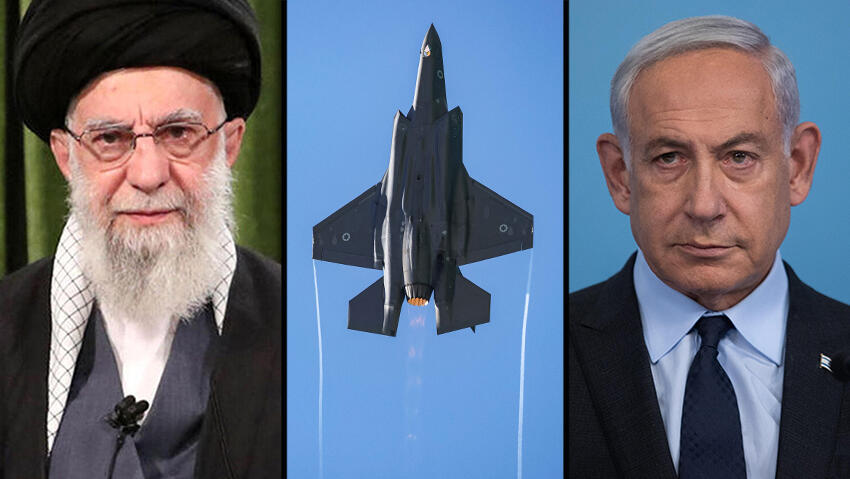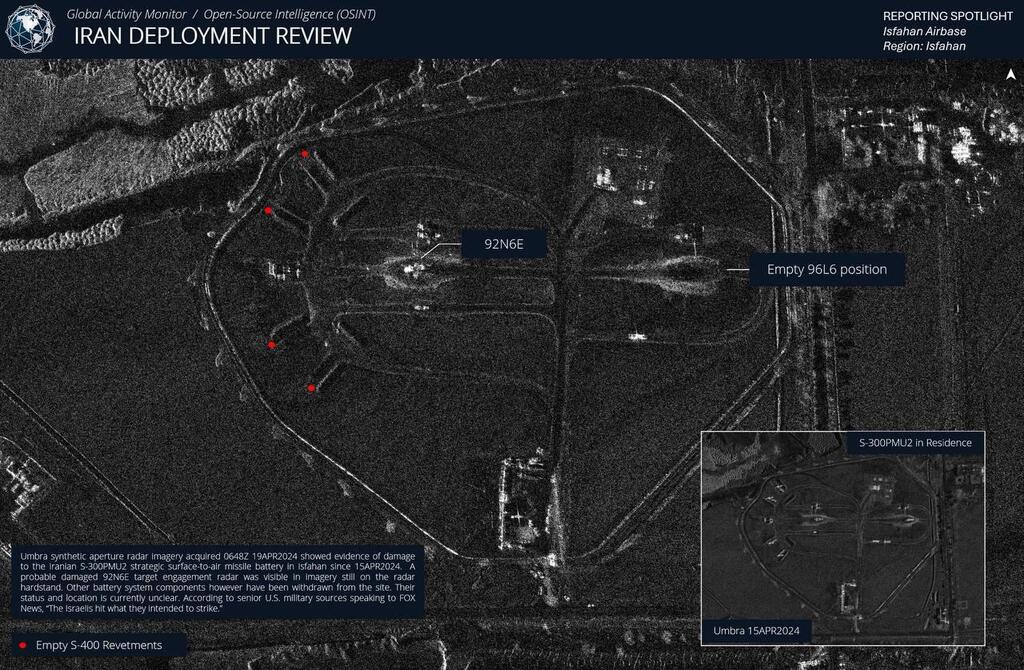Getting your Trinity Audio player ready...
The New York Times reported on Saturday that according to its sources, Israel used at least one missile in the attack on Iran on Friday, launched from a fighter jet far from Iran or Israel's borders, which the Iranian air defense systems could not detect. The attack also reportedly involved cruise missiles launched from Iranian territory.
2 View gallery


Israel and Iran in a round of hostilities
(Photo: Alex Kolomoisky, JACK GUEZ / AFP, AFP / HO / KHAMENEI.IR)
Western sources, including "Yedioth Ahronoth" journalist Ronen Bergman said that the use of these weapons sends a clear message to the Iranian regime. It's just a "taste" of what it might face in a broader confrontation, thus deterring Tehran after its unsuccessful attack on Israel last week.
Two Iranian and two Western sources confirmed to "The Times" on Saturday that the precise attack on a military base in Isfahan hit an S-300 battery, a Russian-made air defense system responsible for detecting and neutralizing aerial threats near the nuclear site in Natanz. The accompanying photos published this morning strengthen these reports, showing damage to the advanced radar, a critical component of the battery deployed at the Iranian Air Force base.
2 View gallery


צילום לוויין שנטען שנראה בו תיעוד נזק למכ"ם של סוללת S-300 בסיס צבאי של איראן באספהאן שנפגע בתקיפה שיוחסה לישראל
(צילום: umbra)
The Times emphasizes that it's still unclear what weapon hit the site. Western and Iranian sources said that the attack involved both cruise missiles launched from within Iran and at least one missile launched from a fighter jet.
Iran officially insists that only cruise missiles launched from its territory were used in the attack and downplayed its significance. Foreign Minister Hossein Amir-Abdollahian described the cruise missiles in an interview with NBC as "toys" and emphasized that there is still no evidence that Israel was behind the attack. Supposedly the assertion was made to contain the event and avoid escalation.
Israeli retaliation in Isfahan
According to Western sources, the missile in Friday's attack was launched from a fighter jet that stayed far from the airspace of Israel or Iran, and it included stealth technology that enabled it to evade Iran's defense systems. The sources stressed that neither the missile nor the fighter jet entered Jordan's airspace to ensure that the kingdom does not get dragged into any potential conflict after having assisted in Israel's defense last week.
Sources added that Israel's retaliation was "calculated" and aimed to convey a message to Tehran about Israel's capabilities. Iran learned that Israel could penetrate Iran's defense systems and silence them using very few munitions compared to the hundreds of cruise missiles and UAVs Iran fired.





